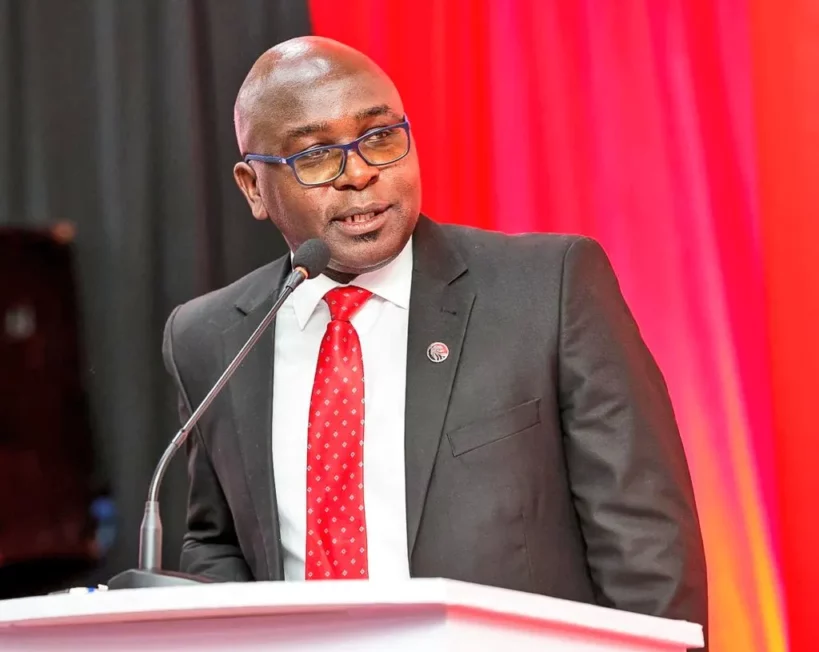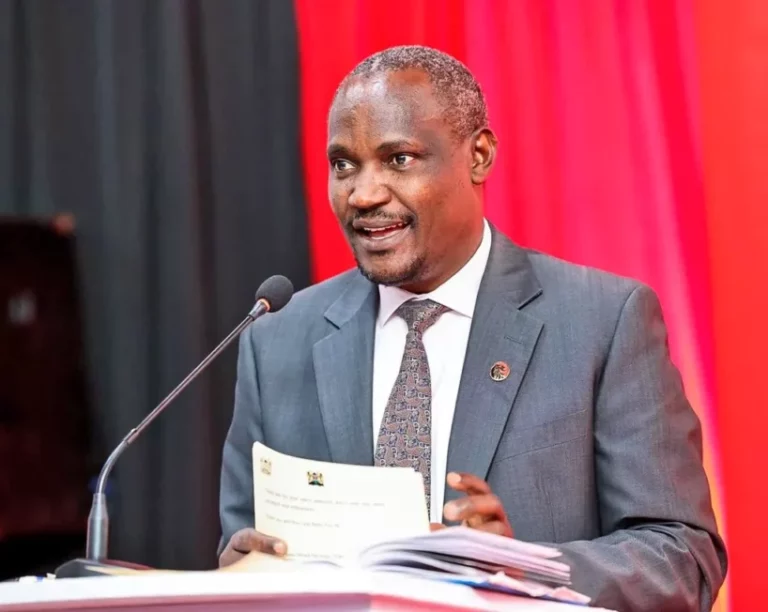The Cabinet Secretary for the National Treasury and Economic Planning, John Mbadi, has directed the Kenya Revenue Authority (KRA) to adopt innovative and technologically advanced strategies to enhance revenue collection.
During a meeting with KRA’s leadership Tuesday, CS Mbadi emphasized the need for continuous modernization to streamline processes, leverage cutting-edge systems, and simplify tax transactions.
“Our modernization journey must align with our objectives and those of taxpayers. This approach will not only benefit taxpayers but also significantly boost our revenue mobilization efforts,” stated CS Mbadi.
Highlighting the transformative power of technology, CS Mbadi emphasized its potential to reform taxpayer services, improve operational efficiency, and enhance revenue collection.
“Our commitment to this cause is evident in our national strategic policy reforms and the ongoing modernization of revenue administration processes,” he added.
To expand the tax base, particularly in challenging sectors, CS Mbadi urged KRA to focus on identifying and reaching untapped revenue sources. This approach will help protect existing businesses from excessive taxation.
The National Treasury will support KRA by developing policies to guide revenue mobilization. The National Tax Policy will focus on expanding the tax base, ensuring fairness and equity, and creating a predictable tax environment.
“Through the Policy, the KRA must ensure that we achieve higher tax compliance, enhance taxpayer experience, and reduce tax expenditure to minimize market distortions and tax refund pressures. As outlined in the Policy, we shall develop a framework for granting tax incentives that are time-bound and growth-oriented,” said the CS.
CS Mbadi noted the importance of achieving higher tax compliance, improving taxpayer experience, and reducing tax expenditure. The Medium-Term Revenue Strategy (MTRS) is a short-term policy that can help KRA effectively collect and meet its revenue targets.
Mbadi will chair the Steering Committee on MTRS implementation to ensure progress towards achieving a tax-to-GDP ratio of 20%.

KRA Commissioner General Humphrey Wattanga announced plans to revamp the authority’s IT infrastructure to establish reliable systems capable of meeting business demands.
He emphasized the importance of modernization in improving operational efficiency, identifying tax evasion, and enhancing service delivery.
By adopting cutting-edge technologies like data science, machine learning, and AI, KRA aims to strengthen operational efficiency, ensure compliance, and elevate service standards.
Economic Outlook
Economic activity in Kenya remains moderate. The Central Bank of Kenya (CBK) estimates real GDP growth for the second quarter at 5.4%, while the headline Purchasing Managers’ Index (PMI) averaged 49.7 during the same period.
More recently, the headline PMI dropped to 43.1 in July, partly due to nationwide protests.
However, NCBA Bank analysts view this as a one-time event and do not anticipate it “to significantly affect economic conditions in the third quarter”.
On the fiscal side, the rescinded Finance Bill 2024 has lengthened the path to fiscal consolidation. To address revenue shortfalls, the government has implemented expenditure cuts and increased domestic borrowing. These measures have led to credit rating downgrades by both Moody’s and Fitch and increased the country’s risk premium.




